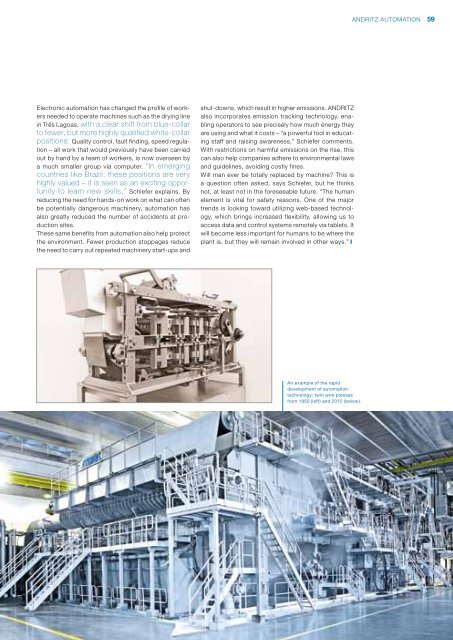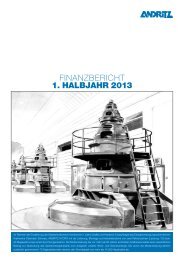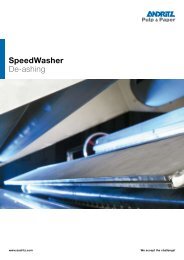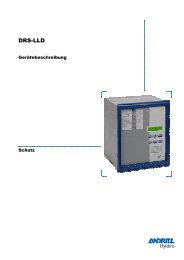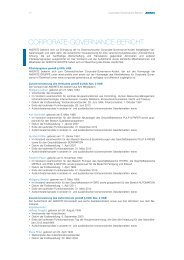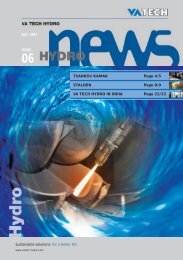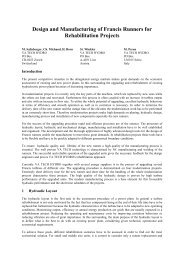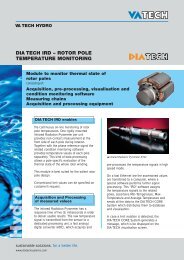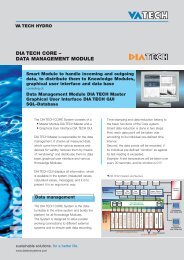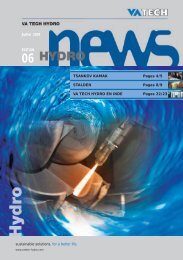ANDRITZ annual report 2012 - ANDRITZ Vertical volute pumps
ANDRITZ annual report 2012 - ANDRITZ Vertical volute pumps
ANDRITZ annual report 2012 - ANDRITZ Vertical volute pumps
You also want an ePaper? Increase the reach of your titles
YUMPU automatically turns print PDFs into web optimized ePapers that Google loves.
<strong>ANDRITZ</strong> AUTOMATION<br />
59<br />
Electronic automation has changed the profile of workers<br />
needed to operate machines such as the drying line<br />
in Três Lagoas, with a clear shift from blue-collar<br />
to fewer, but more highly qualified white-collar<br />
positions. Quality control, fault finding, speed regulation<br />
– all work that would previously have been carried<br />
out by hand by a team of workers, is now overseen by<br />
a much smaller group via computer. “In emerging<br />
countries like Brazil, these positions are very<br />
highly valued – it is seen as an exciting opportunity<br />
to learn new skills,” Schiefer explains. By<br />
reducing the need for hands-on work on what can often<br />
be potentially dangerous machinery, automation has<br />
also greatly reduced the number of accidents at production<br />
sites.<br />
These same benefits from automation also help protect<br />
the environment. Fewer production stoppages reduce<br />
the need to carry out repeated machinery start-ups and<br />
shut-downs, which result in higher emissions. <strong>ANDRITZ</strong><br />
also incorporates emission tracking technology, enabling<br />
operators to see precisely how much energy they<br />
are using and what it costs – “a powerful tool in educating<br />
staff and raising awareness,” Schiefer comments.<br />
With restrictions on harmful emissions on the rise, this<br />
can also help companies adhere to environmental laws<br />
and guidelines, avoiding costly fines.<br />
Will man ever be totally replaced by machine? This is<br />
a question often asked, says Schiefer, but he thinks<br />
not, at least not in the foreseeable future. “The human<br />
element is vital for safety reasons. One of the major<br />
trends is looking toward utilizing web-based technology,<br />
which brings increased flexibility, allowing us to<br />
access data and control systems remotely via tablets. It<br />
will become less important for humans to be where the<br />
plant is, but they will remain involved in other ways.”<br />
An example of the rapid<br />
development of automation<br />
technology: twin wire presses<br />
from 1950 (left) and <strong>2012</strong> (below).


